When Zion Godchaux and Russ Randolph created BoomBox in 2004, they hit the ground running and built their fan base as a touring band. The hectic lifestyle did not allow for much balance, or time in the studio to create a lot of new material. Now, nearly a decade later, BoomBox has recently started spending some more time at home. Families have sprung, and so have home studios, allowing the duo to spend time with loved ones as well as laying down new tracks. BoomBox is starting another chapter, and they told Listen Up Denver! a bit of the story. Listen to their new track “Lost Ya” while reading to set the mood and don’t forget to check them out live this weekend at The Ogden Theatre.
Listen Up Denver!: Give me a day in the life of BoomBox. Studio version.
Godchaux: I would say a typical day in BoomBox world, as far as making new tracks and stuff like that would be something like: I would be at my place and Russ would be at his. I’ll probably hear a bass line in my head, or a drumbeat, or a melody or whatever, and start to kind of put it down. Sequence it out or whatever. Put as many ideas as I have to it. Then get it over to Russ if I think I like it. Then he’ll take it and we’ll jam on it for a while, and it might make it into the rotation for the live shows. Usually, if its solid live, we’ll go back and take a shot at recording it and vice versa. Russ, at the same time, is doing potentially the same kind of thing. We just get together and see what works and what doesn’t.
Randolph: We are multi-track recording our live shows so we are able to go back now, and this is becoming more and more a part of our time home, and go through and listen to the live shows and find parts that we really like. So like Z was sayin’, creating a track that we kinda dig, and it may not even be a complete thought or whatever, but something that we are both kinda feeling and vibing on. Then we’ll kinda’ road test it, try it in front of crowds, and each night make notes after the show or whatever. Then we’ll try it a little different at soundcheck the next day, and just keep on road testing it. Then, when we get back home, we can take parts of our live shows, and use it in our studio creation. So a lot of that is listening to the fabrics and the sounds from the live shows, filtering those out, figuring out what worked and what didn’t, and then bring those into our demos, or the ideas we are passing back and forth, and adding some of the live flavor to it. Then, eventually we start seeing a finished product, and see it is turning into a song that could be released on an album or as a single or whatever.
That’s becoming more and more of our process. We work in the Ableton Live software platform, so a lot of the day is passing a file back and forth. Z may be working on arranging his guitar parts and vocals, say “I like this,” then pass it to me for mixing and tweaking and editing. Both of us are producers, both of us are writers and players, so we both have studios in our home which we spend as much time as possible in. So a lot of it is bouncing the track back and forth until we feel it is a finished thing we are willing to share with people.
LUD!: That brings up something I was thinking of talking about. With the amount of layers in your music, how do you know when a song is done? Is there a bell curve? Can you do too much to a song?
Randolph: No man, not at all. We don’t think anything’s ever done. We turn things in when we have someone slamming us over the head with a deadline. These songs are evolving creatures of their own. Those songs we did on our first album are still evolving today. I don’t think anything is ever really done.
LUD!: That would be tough for me as a writer. Having a piece I was constantly working on and tweaking, and never declaring it done. Especially with people breathing down my neck. But you guys have obviously put yourselves in a situation where you have the freedom to keep working on this stuff.
Randolph: That’s the beauty of it, but it’s a fine line. It’s tough because we don’t have the body of work that we would like. We have a bunch of material that we never actually recorded on an album before. We are independent artists, so we have no one to answer to. It’s kind of a double edged thing. Yes, we have freedom and don’t have to answer to anyone, but sometimes we really need someone to kind of help us stay focused and to put a deadline in front of us or that kind of thing.
LUD!: Any thoughts on that Z?
GODCHAUX: I agree with Russ. Even after we cut the record version, it’s still not done. We want it to sound as good and as true to its essence as possible upon release, but it’s not like the kids 18 and going away to college and you’re not gonna see it. A song isn’t just a snapshot, it’s alive, and we can decide to visit it whenever we want and hang out.
LUD!: So, while we are talking about it, do you have any plans for an album anytime soon?
Godchaux: [Chuckles] Yeah. We are neck deep in the studio right now.
Randolph: We are DEEP in the trenches of the studio trying to get this damn thing finished and out sometime after the holidays are over.
LUD!: Right on. So you’ve laid down all the tracks and you are in the mixing phase?
Randolph: I would say most of the pieces are there. We still have to lay down some vocals on a couple of things…but it’s mostly there. We are definitely in the arranging/editing/mixing phase right now. We have a single that is going to be released any day now, and the full album will be released sometime in January.
Godchaux: It’s going to be called “Fill In The Color.” Or maybe “Colors” or “Filling In the Colors”…we’re not sure. Something like that.
LUD!: Do you work on any other projects besides BoomBox?
Godchaux: We don’t have time. We would like to. I have a four year old, so that takes up a lot of my time. Which I love…that’s the love of my life. Just hanging out with my kid. Right, now, we don’t even have time to even listen to another band, let alone work with somebody.
Randolph: We want to, and we have in the past, but right now the business of BoomBox and having meaningful relationships with our families is a full time gig.
LUD!: I can imagine. That’s the beauty of being able to work remotely.
Randolph: Totally. We can just work whenever it feels natural for us individually and we are just now really getting into the balance of that lifestyle. This is a really good chapter for BoomBox right now.
LUD!: Right on. Is that new lifestyle going to affect your touring schedule at all?
Godchaux: We have wanted to balance that out more. For years we just toured and toured, to where we didn’t have anywhere else to go in the states because we had already been there. We are thankful and fortunate to have work, and I’m not complaining about it but it’s also really important for us to release tracks and we love that just as much as playing live. Even though our record portfolio is not the biggest, it’s still our passion, and we are trying to open up more calendar time in the year to be able to spend time in the studio. It just makes more sense. You are putting out music and your tours are supporting that music. Instead of your tours just supporting your tours. [Laughs]
LUD!: I would imagine you have a lot of material over the years that needs to be fleshed out more.
Randolph: That’s the frustration. Because we toured so many dates, we never really had the time to go back and cut a lot of these songs the way we’d like to.
Godchaux: I mean, even if you’ve got two weeks off the road, it takes a week to recover. Then you are supposed to make progress in the studio, and be able to hang out with your family in a coherent state of mind. That first week you’re in a daze, and honestly, it’s a lot harder than it may appear….to do both…to tour and record. Like Russ said, it definitely helps to have someone on your ass. You’ve got to.
Randolph: Moving forward, I do see BoomBox playing fewer dates each year and having more time in the studio. Recording tracks and putting out more singles throughout the year.
LUD!: Well, that also reflects the attention span of a listener nowadays anyway. They want exposure to new tracks more frequently, but not necessarily a whole album.
Randolph: True, but at the same time, we are old enough where we have a romantic relationship with the idea of an album; a complete body of work, a collection of songs. I never want to rule that out. We are still gonna make records, but we are definitely going to be dropping singles that may not exist on an album. That’s definitely what kids want.
Godchaux: Records are a journey that you take people on. With a single, you take people for a spin around the block, but with a record you have the chance to go on a real expedition which is what we are really proud of, especially “Visions of Backbeat”. That’s a real record; people listen to it all the way through.
LUD!: Since you are cutting back on your dates, we really appreciate you giving us a few here in Colorado soon. I don’t know how you guys feel about it, but it seems to me like Colorado really digs what you guys are doing. Do you pick up on that as well?
Godchaux: Oh yeah.
Randolph: For sure, for sure. Anytime we come out to Colorado, we get really fired up. I mean we get excited for all our shows but there are a few cities in the country that we really get excited about playing and Colorado is at the top of that list.
LUD!: Why do you think Colorado audiences really connect to what you are doing?
Godchaux: I think about it often actually. Why Colorado? Why is everyone moving there? Why is the electronic fusion wave seem to kind of come out of there as far as The States go. Maybe it’s just because it’s a cross of the kind of people who migrated west during the Manifest Destiny days, that pioneer spirit, and the West Coast vibe. Somehow,Colorado is pretty much in the center of that, and the two states of mind meet.
Randolph: There is also a lot of people making treks there. It’s almost like it’s a modern day San Francisco during the 60s. A lot of these kids are going to Colorado now as their modern pilgrimage. Realistically I think we are going to look back on this years from now and realize it really was like San Francisco in the 60s. People are going to Denver and the Colorado area for this scene that is emerging. I mean, look at the marijuana laws now and this big cultural shift that is happening. I think this is a lot bigger than people are aware of. A lot of people we meet in Colorado didn’t grow up in Colorado. They are recent transplants.
LUD!: True that. I moved here from the Catskills in NY, strictly for the music scene. My first night visiting I saw three different bands in three different venues, and left town, with a girlfriend and an apartment, to go get my shit from NY. That was 8 years ago and there was no looking back. I really feel like something big is happening here, like there is a revolution happening.
Randolph: Yeah!
Godchaux: It’s a renaissance.
LUD!: It’s exciting! And it must be exciting as an artist to be able to look out from the stage and see people really picking up what you are putting down.
Randolph: It’s an amazing thing when a person will listen to you do your thing anyway, but when you have that number of people that are totally open to traveling with you down that road, it is truly mind blowing.
Godchaux: It’s not just any show. That’s in Colorado. To be accepted there, and to have people want to come see us, I mean that’s a big deal. There’s a lot of music going on there and we are unbelievably fortunate and thankful to been able to have developed this relationship with the folks out in Colorado. It’s a high honor, for sure.
LUD!: What has been your favorite musical experience as artists?
Randolph: Back in 2005 or 2006 we played at the Oregon Country Fair. We played this late night set, completely unplanned, on this spoken word stage.
Godchaux: And we weren’t asked to play, we asked them if we could set up. [laughs]
Randolph: Yeah! [laughs] The guy said all he had was a small little speaker system which was really just designed for speech and he didn’t think it was gonna be adequate, but that we could just totally rock it and do our thing. We grabbed our stuff and set up and after a couple minutes of playing, the tent was packed; at least a couple hundred people. But it’s so packed, that just the people dancing alone is louder than the PA. Everybody is being super, super quiet, and we are actually playing to the sound of this couple hundred people dancing as quietly as they can. The sound of them just dancing on the ground is like this cadence and we were truly mixing in and out and using that to work around. There was something about those people being so thankful, but so respectful. No one was loud or being a dick, and everyone was being so quiet so they could hear the music, but you could still hear the sound of their feet hitting the ground. I never experienced anything like that before or after that night.
Godchaux: The thing is, that was our first tour. The people at the Oregon Country Fair didn’t know who BoomBox was. To them, it was just music coming from a tent so it was very real. I don’t know if I’ll ever be able to top that one. The thing is, we are fortunate enough to have a lot of unbelievable experiences.
LUD!: When I think about what you do for a living, in the grand scheme of things, you make people dance. Right?
Randolph: That’s our bottom line really.
LUD!: That story you just told is what music is about for most of us…making that connection.
Randolph: When we play, we are trying to listen to the people. That’s the reasons we don’t do setlists. We try to hear what the audience has to say. We don’t make a plan for a show, we just react to what the crowd is doing. So it’s a conversation. We try to make it as real and authentic as we can every night.
Catch BoomBox Live at The Ogden Theatre January 4th and 5th.
PURCHASE FRIDAY TICKETS HERE
PURCHASE SATURDAY TICKETS HERE
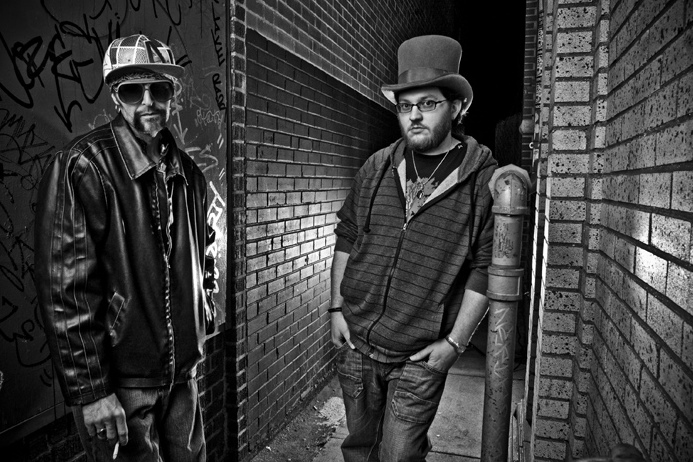
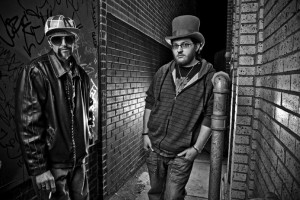
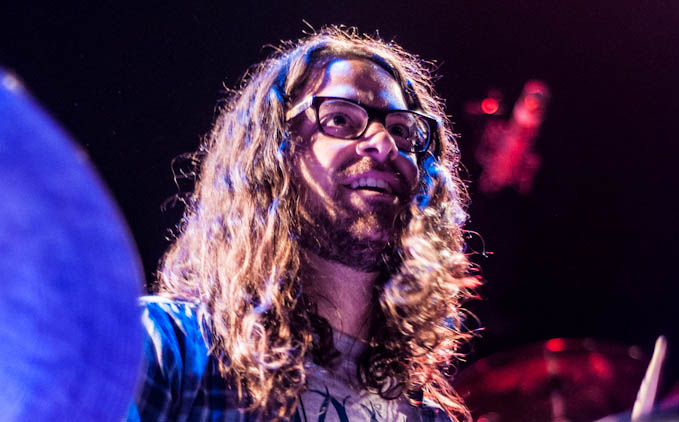
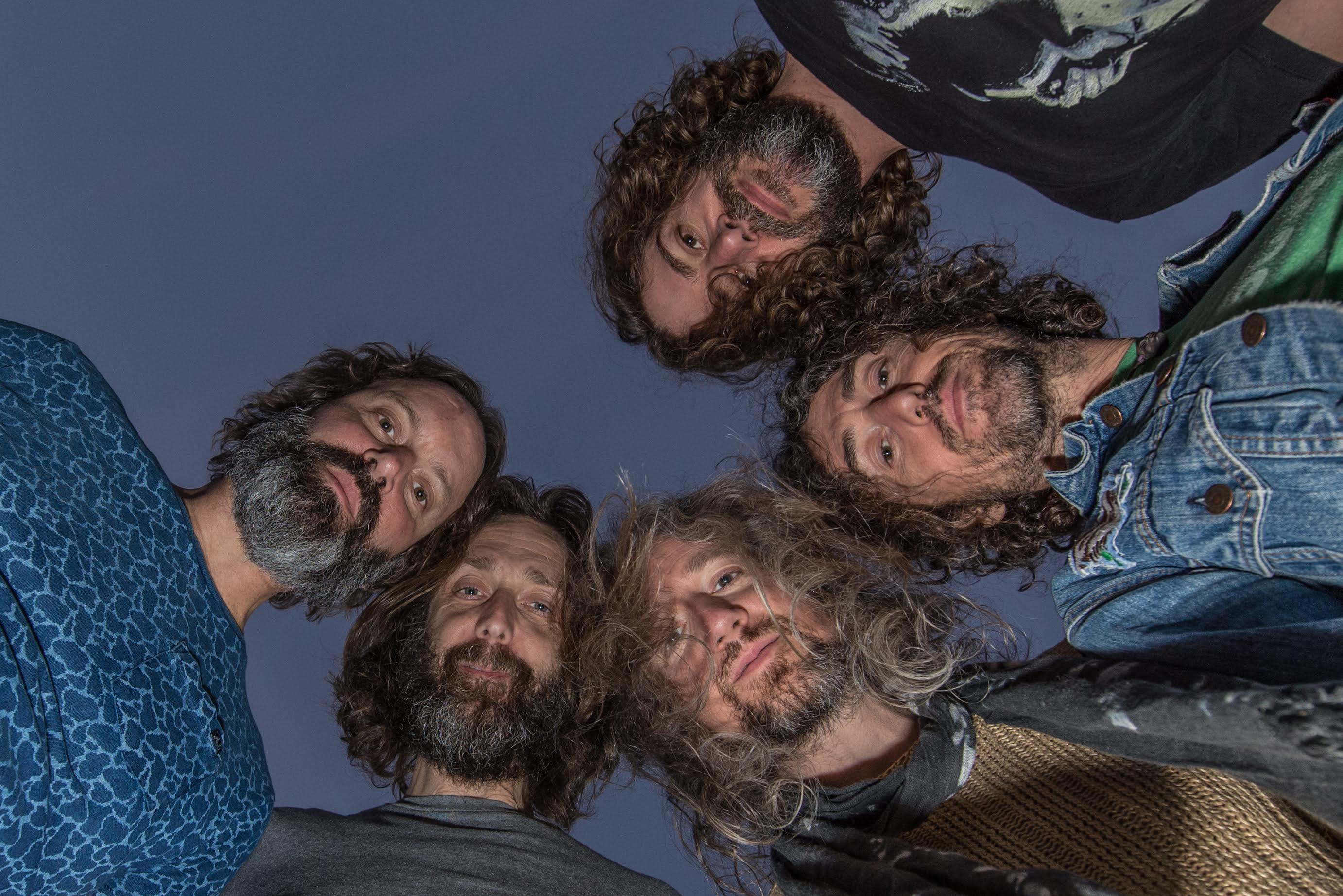
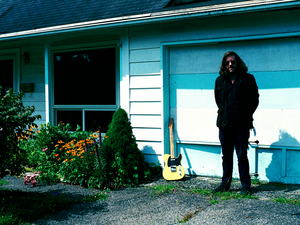
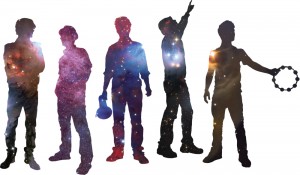
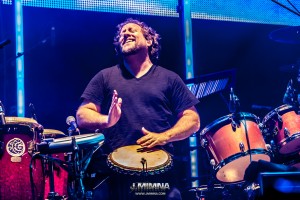
+ There are no comments
Add yours